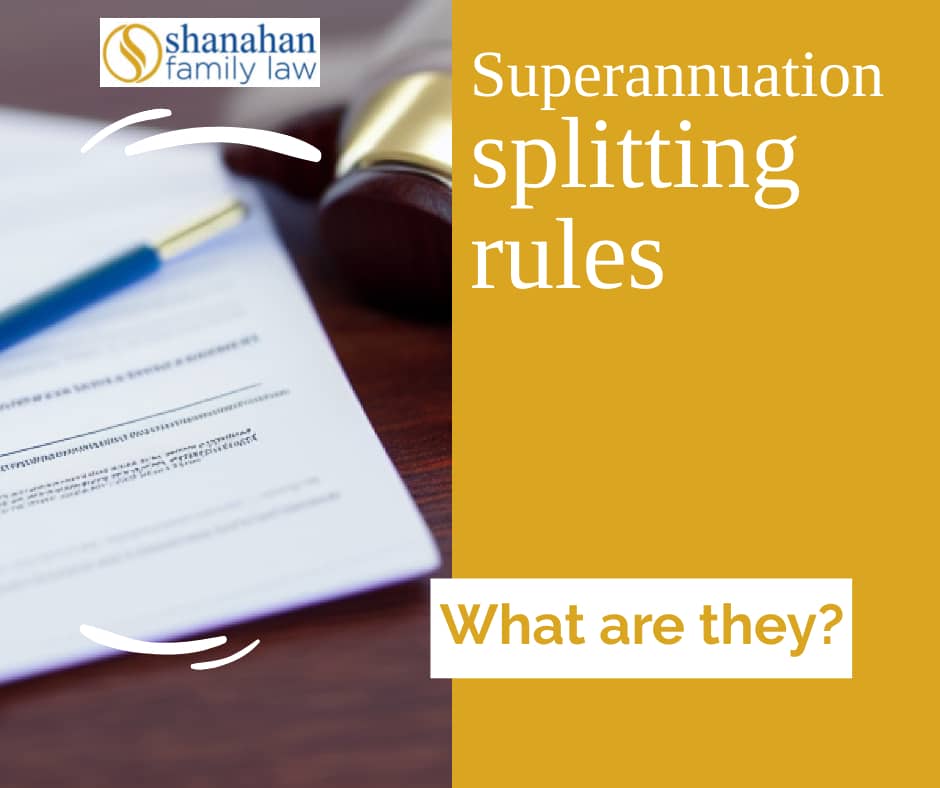Key Takeaways

- Superannuation is a crucial asset for Australians and is property under family law.
- You must follow specific superannuation splitting rules and regulations after separation.
- Not considering superannuation during a property settlement is a common mistake.
- Many people don’t know the value of their partner’s superannuation.
- Self-managed super funds, unsplittable interests, and unfair agreements can be problems. Independent legal advice is essential to protect your interests.
Superannuation is a critical asset to most Australians, second only to the family home in importance. Therefore, splitting superannuation after separation is a crucial consideration.
Family law defines superannuation as property. However, it’s different to other assets as it’s held in a trust. Specific laws regulate superannuation, including the process of splitting interests.
As family law specialists, we see certain mistakes related to super splitting come up repeatedly. With such a vital asset at stake, we want to address these issues so you can receive your full entitlements.
Superannuation splitting rules
Superannuation splitting rules allow for dividing an interest between a member and a non-member. You can split superannuation through a financial agreement or a court order. The Family Court splits super as part of a four-step process rooted in the Family Law Act.
Not considering superannuation during a property settlement
The Australian Institute of Family Studies (AIFS) is an agency within the Department of Social Services. An AIFS report found less than half of couples considered superannuation benefits during a divorce.
Superannuation has become a crucial asset in our wealth. But women often face retirement with much less superannuation than men. Understanding your partner’s superannuation interests and your entitlements to them is vital.

Not understanding the value of your ex-partner’s superannuation assets
You must know your former partner’s financial position to receive your superannuation entitlements. Too often, people are unaware of the value of their spouse’s superannuation. Without this information, you cannot split the interest fairly. Your spouse may also be hiding their finances from you. The Courts have created avenues to increase financial transparency in these cases.
You can access information about a partner’s superannuation fund by filing a super information request form. You must complete this form online. The super fund must comply with the request and provide the necessary records. The Australian Taxation Office can also provide information.
Superannuation splitting rules for self-managed funds
A self-managed super fund (SMSF) increases the complexity of an already complex situation. How you handle SMSFs during a separation or divorce will differ between cases. SMSFs differ from other super funds as they may contain various asset classes. You can invest in shares, real estate, art pieces, etc. Some assets are hard to value, which makes splitting problematic.
Also, SMSFs can include assets like business premises belonging to a trustee. Splitting the SMSF may mean selling the property to pay out a member. Is it worth the cost to move the business to a new location?
Splitting may make the SMSF uncompetitive. The best solution may be for both parties to remain members of the SMSF with separate accounts. This option is easier if the separation is amicable and the superannuation split is recorded as part of a Binding Financial Agreement. Being a superannuation fund trustee in an SMSF with your former spouse requires a lot of trust. Cooperating with your ex-spouse for the good of the SMSF may be possible for some, but not all.

Unsplittable superannuation fund
Some superannuation interests are unsplittable. The Family Law (Superannuation) Regulations 2001 determine when an interest is not splittable. For example, you cannot split interests valued at less than $5000. Below this threshold, it would do more harm than good to divide the asset.
Accepting unfair superannuation agreements
There are two ways to formalise a super-splitting agreement. You can go through family law proceedings for consent orders, which ensure a just and equitable outcome for both parties. You won’t even need to attend a court hearing. You can also create a superannuation agreement through a law firm.
Superannuation agreements require you to seek independent legal advice. However, they don’t need to satisfy the Court’s fairness test. You must engage effective legal counsel to protect your interests.

Get independent legal advice
Superannuation splitting rules can be complex and challenging. With our help, you can avoid the common mistakes people make with superannuation. Shanahan Family Law has experience in dealing with difficult property issues. Contact us today to set up an initial discovery call.
The above information is intended to be general advice only and is not a substitute for personalised advice. Because it does not consider your individual circumstances, it is not intended to be relied upon, and any loss or damage arising from any such reliance is disclaimed. Any financial or legal decisions should only occur after you have received tailored advice from a legal or financial professional.

